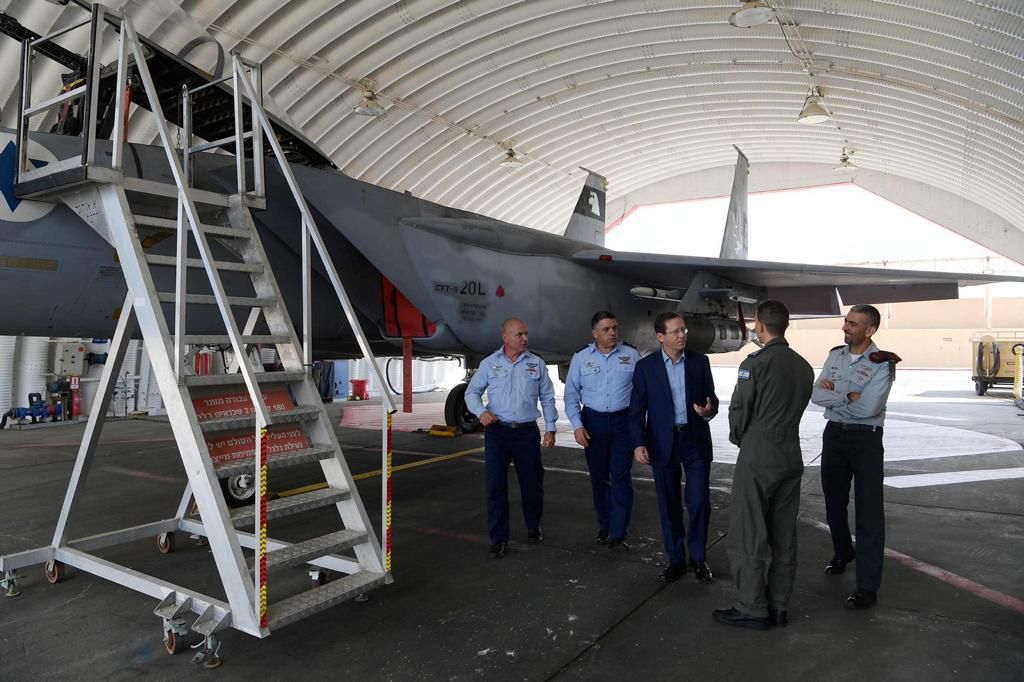
Israel’s top military official in a series of Twitter posts on Tuesday warned that the Iranian nuclear threat has reached a “critical time” while hinting at the “acceleration” of plans for military action against Tehran’s nuclear program. The posts of comments by IDF Chief Lt. Gen. Aviv Kohavi came the same day major powers in Europe condemned with alarm Iran’s latest move to increase the production of enhanced nuclear fuel, saying the move actually risks the global effort to stop the proliferation of nuclear weapons.
The IDF Twitter page posted comments from Kohavi on Tuesday, after he met with senior US officials in Washington the day before. The post said the Iran nuclear threat was the primary discussion topic. “On the one hand, Iran is under many economic, military, and internal pressures, and on the other hand, it continues to promote its nuclear program. The IDF strongly promotes all operational plans against the Iranian threat,” Kohavi was quoted in the post as saying.
“During the discussions, it was agreed that we are at a critical point in time that requires the acceleration of operational plans and cooperation against Iran and its terrorist proxies in the region.”
Israel has long hinted at a potential military strike against Iran’s nuclear program, but has so far preferred other operational activities in a covert campaign involving espionage, sabotage, and the assassination of key persons in Iran’s nuclear program—according to media reports.
Meanwhile, France, Germany and the United Kingdom, also known as the E3, stopped short of making threats in their warning. Nonetheless, they called Iran’s latest move to enhance its nuclear fuel production “especially concerning.”
In a joint statement published by Germany’s Federal Foreign Office, the E3 said on Tuesday, “Iran’s step is a challenge to the global non-proliferation system. This step, which carries significant proliferation-related risks, has no credible civilian justification.”
The three European powers noted that the Iranian actions are “even more concerning” given Iran’s decision five months ago to stop implementing nuclear transparency actions related to the now-defunct 2015 nuclear deal, known as the Joint Comprehensive Plan of Action (JCPOA).
The E3 statement follows Iran’s decision to begin uranium enrichment to 60% purity at its underground Fordow plant, noted in a report by Iran’s Press TV. The 60% enrichment level for nuclear fuel is well on the way towards the 90% enrichment needed for nuclear weapons and far above standard civilian use.
According to Press TV, Iran took the move in response to the International Atomic Energy Agency (IAEA) Board of Governor’s resolution critiquing Iran’s lack of cooperation in nuclear matters. The E3 said in their Tuesday statement that Iran’s escalation in response to the IAEA resolution was “unacceptable” and noted that Iran is “legally obliged under the Non-Proliferation Treaty [NPT] to fully implement its safeguards agreement.”
The E3 comments are the second Iran nuclear-related statement in less than a week from the European powers, who last week joined with the United States in applauding the IAEA Board resolution against Iran. In that press release, published by the US State Department, the four allies said the IAEA resolution “sent a clear message that it is essential and urgent that Iran fulfills its NPT-required safeguards obligations and take the actions specified without delay.”
Specifically, the West nations’ statement noted that Iran “must provide technically credible explanations for the presence of uranium particles identified at three undeclared locations in Iran and clarify the whereabouts of the related nuclear material and/or contaminated equipment.”
With those nuclear questions outstanding, concerns for Israel and Europe continue to grow. For now, the only public action being taken against Iran are sanctions and ongoing disucssions amongst the allies opposing Iran.
Said the E3 statement, “We will continue to consult, alongside international partners, on how best to address Iran’s continued nuclear escalation.”
(By Joshua Spurlock, www.themideastupdate.com, November 22, 2022)
